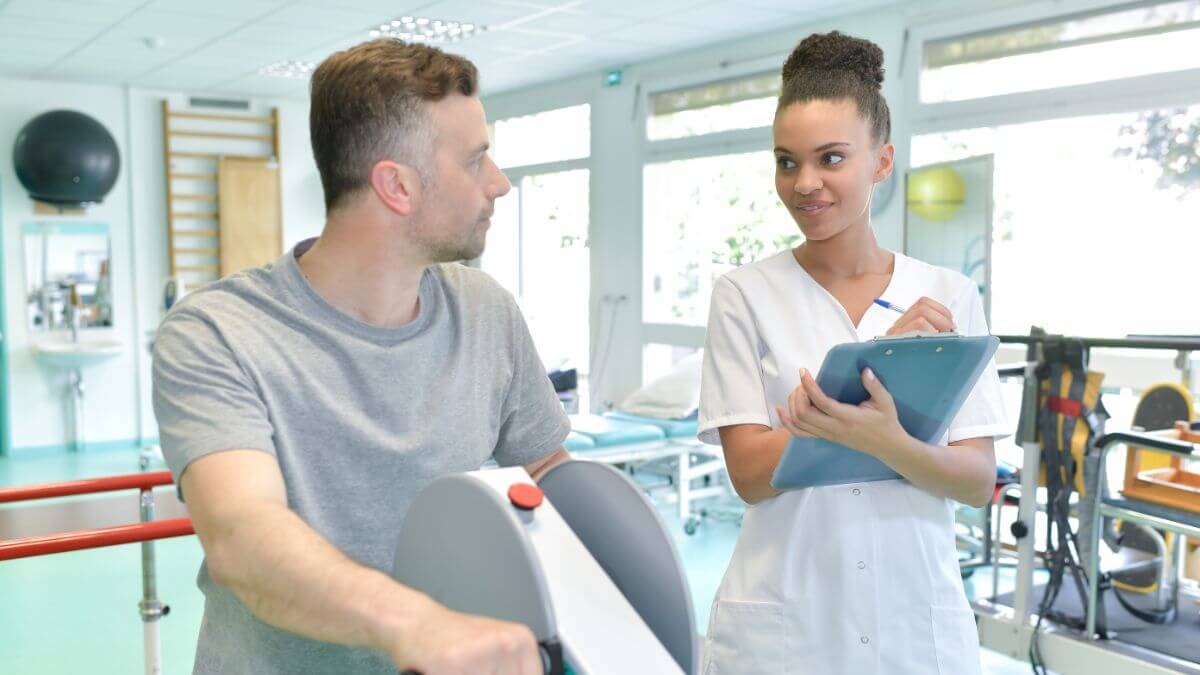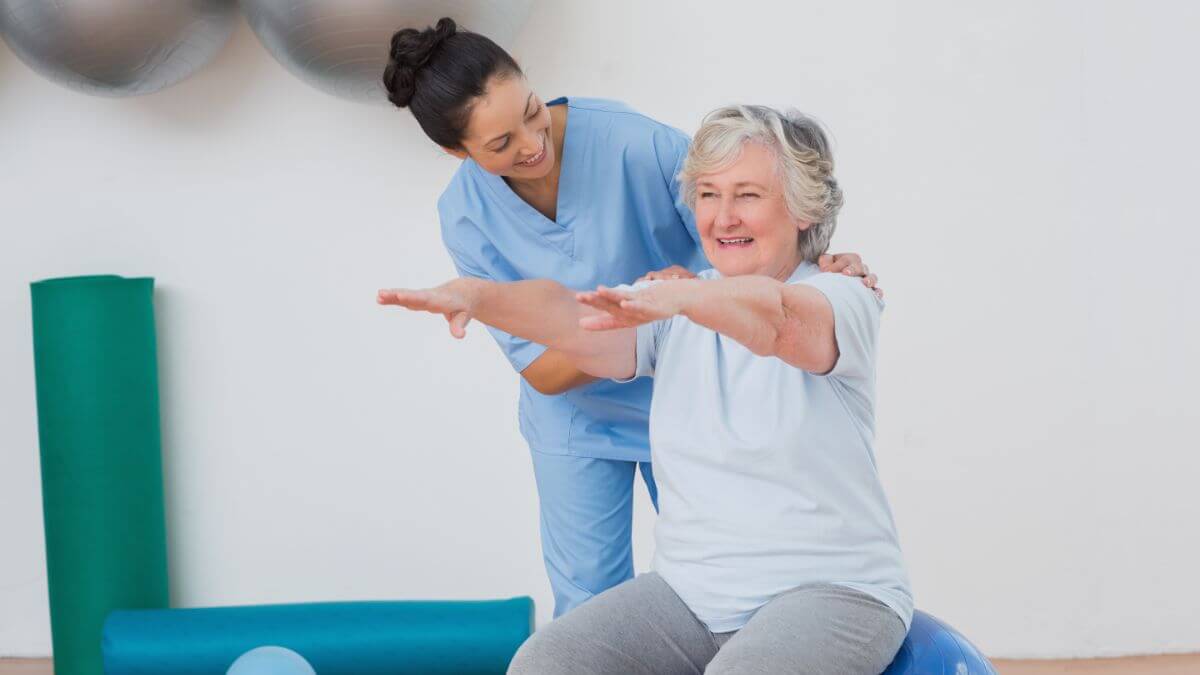Services
Rehabilitation
Physical Health Rehabilitation Program

Work capacity development program
This program uses an individualized and structured approach with the aim of assisting the client, after a physical injury, in developing his or her function and abilities with respect to specific or general work activities, and in achieving a safe and sustainable return to work. Following an initial occupational therapy assessment, an intervention plan is developed that may include educational workshops, postural and biomechanical rehabilitation, functional exercises, work simulations and physical fitness components. The occupational therapist develops a return-to-work plan and can provide on-the-job coaching with the client as needed.

Specialized pain management rehabilitation program
This program is designed for clients who are unable to self-manage persistent pain resulting from a physical injury. The program is designed to teach the client to better understand pain and to help them develop effective strategies to improve their ability to perform their activities. Following an initial occupational therapy assessment, a treatment plan is developed which may include, for instance, the establishment of a healthy and balanced lifestyle routine, sleep tips and bed positioning, teaching the importance of a sense of satisfaction and accomplishment, postural and biomechanical re-education, energy conservation and teaching relaxation techniques.

Return to work program
An individualized and structured program designed to promote the gradual reintegration of the client into the workplace following an injury, condition or illness. Such a program may include the adaptation of tasks and/or work schedule and/or equipment. The occupational therapist provides follow-up, support and supervision throughout the reintegration process.

On-the-job coaching
A workplace intervention with the goal of decreasing the risk of injury or recurrence and offering specific strategies to the client to facilitate the return to and/or maintenance of work. This service is often used to teach safe postural and biomechanical techniques, provide cognitive strategies or offer support and coaching to a client returning to work after a prolonged absence.

Hand rehabilitation
Intensive rehabilitation following an orthopedic hand injury. After completing an assessment of the upper limb, the occupational therapist establishes a treatment plan to allow the client to regain maximum joint range of motion, sensation, muscle strength, muscle endurance and an optimal level of function with respect to the performance of activities of daily living.

Workstation assessment according to functional limitations
An analysis that objectively measures the physical and/or perceptual-cognitive demands of the essential components of a workstation. This assessment includes the measurement of forces, body positions and postures, mobility and frequencies required to complete the work tasks. Other factors such as noise, lighting, temperature and the type of equipment used are also taken into consideration. This assessment is completed in order to establish a correlation based on functional limitations previously identified through a medical expertise or a standardized functional capacity evaluation.

Standardized functional capacity evaluation
Half Day Assessment: A four (4) hour assessment that determines the baseline functional level of the client’s general functional abilities. The analysis of the results of this assessment may be useful in determining the intervention goals of a functional skills development program or in assisting with work reintegration efforts.
One-Day Assessment: A 7-hour assessment that assesses pain profile, musculoskeletal function, physical exertion and general or job-specific functional abilities in a standardized manner. This assessment is often administered to determine functional limitations in relation to a specific job or to assist in vocational reorientation.
Multi-day assessment: The first day of assessment includes all aspects assessed in the one-day assessment. Subsequent days may include simulations, endurance assessment and additional standardized tests as needed.
Mental Health Rehabilitation Program

Occupational reactivation program (PRO)
A structured and individualized program, aimed at reactivating the client with a mental health disorder such as mood disorders, burnout, adjustment disorders, post-traumatic stress disorder, among others. This program aims to increase engagement in the occupational spheres (rest, self-care, productivity and leisure), develop effective management strategies in all four spheres and prepare the client for eventual reintegration into the workforce or increased community involvement (volunteer work). A holistic approach and client-centered intervention is prioritized during this program. The PRO encourages client proactiveness and empowerment. The formulation of S.M.A.R.T. goals, the use of various checklists (interests, roles, habitual activities) as well as the measurement of activity participation are tools commonly used in this program. A functional circuit for physical and cognitive reconditioning could also be considered in this service.